-
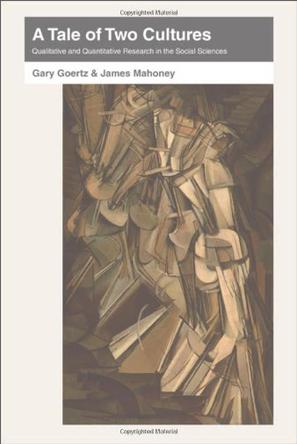
A Tale of Two Cultures
Some in the social sciences argue that the same logic applies to both qualitative and quantitative methods. In "A Tale of Two Cultures", Gary Goertz and James Mahoney demonstrate that these two paradigms constitute different cultures, each internally coherent yet marked by contrasting norms, practices, and toolkits. They identify and discuss major differences between these two traditions that touch nearly every aspect of social science research, including design, goals, causal effects and models, concepts and measurement, data analysis, and case selection. Although focused on the differences between qualitative and quantitative research, Goertz and Mahoney also seek to promote toleration, exchange, and learning by enabling scholars to think beyond their own culture and see an alternative scientific worldview. This book is written in an easily accessible style and features a host of real-world examples to illustrate methodological points. -
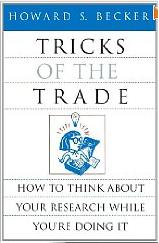
Tricks of the Trade
Drawing on more than four decades of experience as a researcher and teacher, Howard Becker now brings to students and researchers the many valuable techniques he has learned. Tricks of the Trade will help students learn how to think about research projects. Assisted by Becker's sage advice, students can make better sense of their research and simultaneously generate fresh ideas on where to look next for new data. The tricks cover four broad areas of social science: the creation of the "imagery" to guide research; methods of "sampling" to generate maximum variety in the data; the development of "concepts" to organize findings; and the use of "logical" methods to explore systematically the implications of what is found. Becker's advice ranges from simple tricks such as changing an interview question from "Why?" to "How?" (as a way of getting people to talk without asking for a justification) to more technical tricks such as how to manipulate truth tables. Becker has extracted these tricks from a variety of fields such as art history, anthropology, sociology, literature, and philosophy; and his dazzling variety of references ranges from James Agee to Ludwig Wittgenstein. Becker finds the common principles that lie behind good social science work, principles that apply to both quantitative and qualitative research. He offers practical advice, ideas students can apply to their data with the confidence that they will return with something they hadn't thought of before. Like Writing for Social Scientists, Tricks of the Trade will bring aid and comfort to generations of students. Written in the informal, accessible style for which Becker is known, this book will be an essential resource for students in a wide variety of fields. "An instant classic. . . . Becker's stories and reflections make a great book, one that will find its way into the hands of a great many social scientists, and as with everything he writes, it is lively and accessible, a joy to read."—Charles Ragin, Northwestern University -
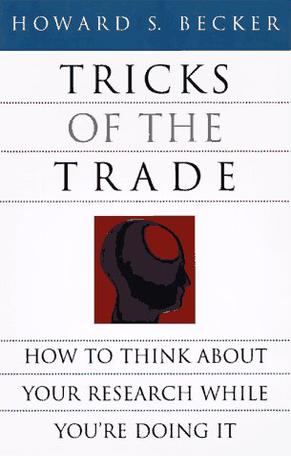
Tricks of the Trade
Drawing on more than four decades of experience as a researcher and teacher, Howard Becker now brings to students and researchers the many valuable techniques he has learned. Tricks of the Trade will help students learn how to think about research projects. Assisted by Becker's sage advice, students can make better sense of their research and simultaneously generate fresh ideas on where to look next for new data. The tricks cover four broad areas of social science: the creation of the "imagery" to guide research; methods of "sampling" to generate maximum variety in the data; the development of "concepts" to organize findings; and the use of "logical" methods to explore systematically the implications of what is found. Becker's advice ranges from simple tricks such as changing an interview question from "Why?" to "How?" (as a way of getting people to talk without asking for a justification) to more technical tricks such as how to manipulate truth tables. Becker has extracted these tricks from a variety of fields such as art history, anthropology, sociology, literature, and philosophy; and his dazzling variety of references ranges from James Agee to Ludwig Wittgenstein. Becker finds the common principles that lie behind good social science work, principles that apply to both quantitative and qualitative research. He offers practical advice, ideas students can apply to their data with the confidence that they will return with something they hadn't thought of before. Like Writing for Social Scientists, Tricks of the Trade will bring aid and comfort to generations of students. Written in the informal, accessible style for which Becker is known, this book will be an essential resource for students in a wide variety of fields. "An instant classic. . . . Becker's stories and reflections make a great book, one that will find its way into the hands of a great many social scientists, and as with everything he writes, it is lively and accessible, a joy to read."—Charles Ragin, Northwestern University -
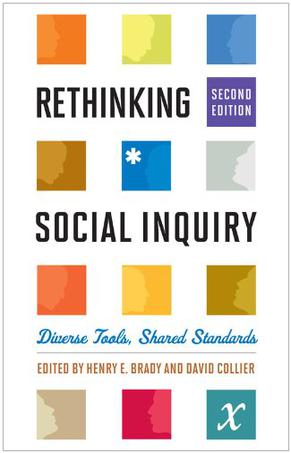
Rethinking Social Inquiry
-
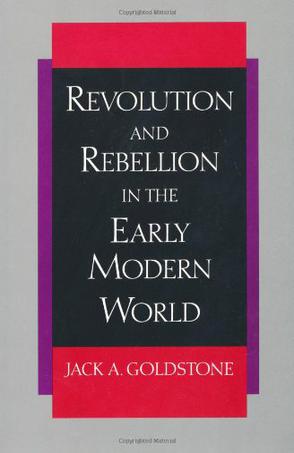
Revolution and Rebellion in the Early Modern World
What can the great crises of the past teach us about contemporary revolutions? Arguing from an exciting and original perspective, Goldstone suggests that great revolutions were the product of 'ecological crises' that occurred when inflexible political, economic, and social institutions were overwhelmed by the cumulative pressure of population growth on limited available resources. Moreover, he contends that the causes of the great revolutions of Europe--the English and French revolutions--were similar to those of the great rebellions of Asia, which shattered dynasties in Ottoman Turkey, China, and Japan. The author observes that revolutions and rebellions have more often produced a crushing state orthodoxy than liberal institutions, leading to the conclusion that perhaps it is vain to expect revolution to bring democracy and economic progress. Instead, contends Goldstone, the path to these goals must begin with respect for individual liberty rather than authoritarian movements of 'national liberation.' Arguing that the threat of revolution is still with us, Goldstone urges us to heed the lessons of the past. He sees in the United States a repetition of the behavior patterns that have led to internal decay and international decline in the past, a situation calling for new leadership and careful attention to the balance between our consumption and our resources. Meticulously researched, forcefully argued, and strikingly original, Revolutions and Rebellions in the Early Modern World is a tour de force by a brilliant young scholar. It is a book that will surely engender much discussion and debate. -
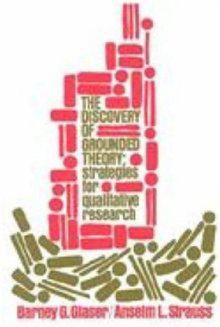
The Discovery of Grounded Theory
http://www.sociologypress.com/books/classic_series/the_discovery_of_grounded_theory.htm The seminal work on classic grounded theory methodology, co-authored by Barney G. Glaser and Anselm Strauss. CONTENT I The Discovery of Grounded Theory Part I Generating Theory by Comparative Analysis II Generating Theory III Theoretical Sampling IV From Substantive to Formal Theory V The Constant Comparative Method of Qualitative Analysis VI Clarifying and Assessing Comparative Studies Part II The Flexible Use of Data VII New Sources of Qualitative Data VIII Theoretical Elaboration of Quantitative Data Part III Implications of Grounded Theory IX The Credibility of Grounded Theory X Applying Grounded Theory XI Insight and Theory Development Epilogue Index